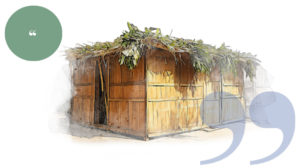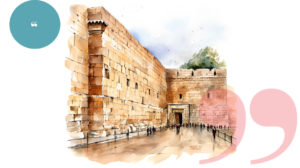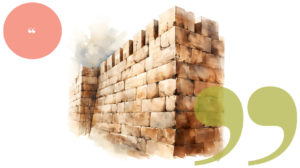Editor’s Letter: Issue 440
| May 6, 2015The true tests are not when ideals are pitting against fleeting desires. It’s when ideals are pitted against ideals
In high school, life decisions are often portrayed in black and white terms. You go out with a solid ben Torah but he doesn’t have the sense of humor you always wanted in a spouse. You want your husband to learn full-time, but also want a diamond bracelet for your anniversary. You want to live in a growth-oriented community, but the one you find is a hundred miles from a decent pizza shop.
“What’s really important?” your teacher asked passionately. “Is it not worth giving up these transient things so you can have a life of eternal meaning?” And you nodded vigorously as you took copious notes. Of course you’ll give up on the trivialities of life so you could merit eternity. When you need a good laugh, you’ll call your humorous friend. Forget the diamond bracelet; costume jewelry is just fine. And pizza? Why, you’ll make your own. Never will you allow such shallow considerations to cloud your judgment and muddle your choices.
But it’s not quite so straightforward. In Gateshead seminary, one of my rabbanim clued us in to the nature of truly wrenching life decisions. We were learning about the mussar giants, and he taught us about the extreme asceticism of the Novordokers. Some of them would leave their families for week, even months, and go into self-imposed exiles to perfect themselves. “But what about their wives and children?” one girl asked. “Is leaving one’s family for so long the way to attain perfection?”
“In life,” the rav responded, “the true tests are not when ideals are pitting against fleeting desires. It’s when ideals are pitted against ideals. Yes, it’s an ideal to be an involved father and husband. And it’s also an ideal for some exceptional individuals to go into exile to attain self-perfection. Balancing those ideals — or any ideals that clash — requires the input of a rav, and extreme honesty.”
I dutifully wrote the words in my notebook, but that wasn’t necessary; they were seared upon my mind. Though the concept was still theoretical back then, the words rang of a fundamental truth. As life unfolds, I encounter the agonizing decisions my rav had described again and again.
I want to be a fully present mother. But I also want to enable my husband to spend his days learning Torah.
She wants to be married already, to build a family before it’s too late. But there are crucial foundations her home must be built upon, and no one she’s met yet shares her vision.
He wants to take a job that will enable him to help Klal Yisrael. But the paltry salary being offered won’t cover his children’s tuition.
I thought of these scenarios, and my rav’s wise statement, as I worked on this week’s AdviceLine. A woman dreams of living in the land upon which “Hashem’s Eyes rest from the beginning of the year to the end of the year.” But her husband will be unable to support the family there. And her struggling teen daughter may not have her educational needs met. Ideals, so many ideals, crashing and clashing in painful cacophony.
There are never easy answers to such dilemmas. We try to peel away the layers of self-interest and reach the core of emes within us. We speak to those whose Torah knowledge enables them to see far more than we’re able envision. And mostly, we daven that we make the right decisions, and that the paths we choose will bring us closer to our Creator.
(Originally featured in Family First, Issue 440)
Oops! We could not locate your form.











